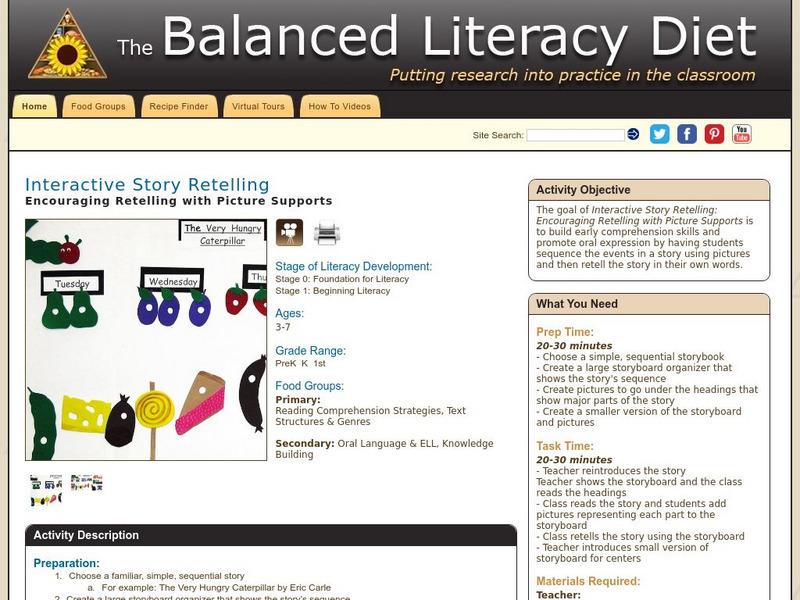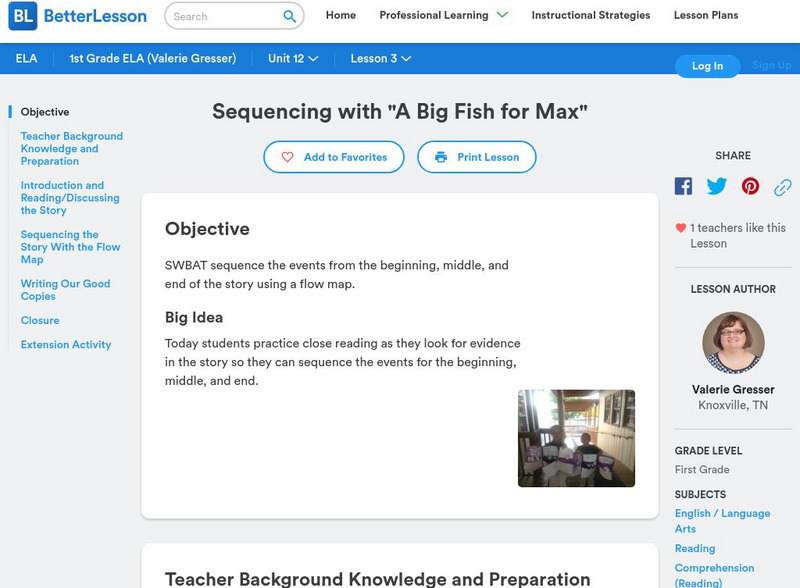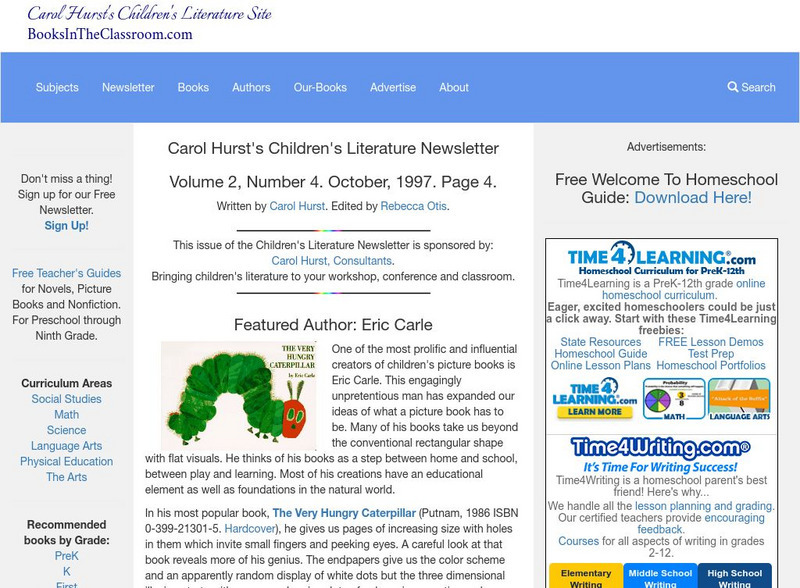Hi, what do you want to do?
Curated OER
Narrative Writing
Students complete activities to learn narrative writing. In this narrative writing lesson students are given writing prompts in order to better understand how to write in a narrative format.
Curated OER
Oh Say Can You See?
Pupils discover the meaning of patriotism through literature, songs, and poetry. They also identify patriotic symbols and activities such as the flag, the Pledge of Allegiance, the Star Spangled Banner, the bald eagle, and monuments.
Curated OER
Father Knows Best
Students recognize that history describes events and people of other times and places identifying George Washington by historical account. They describe everyday life in the present and in the past and begin to recognize that things...
Curated OER
Nature’s Fury—Myths and Drama
Fifth graders explore the elements of theatre. In this dramatic performances lesson, 5th graders discuss the structural elements of theatre and dramatize "The Origins of the Season," an explanation myth.
Curated OER
Harvest Happenings
Learners explore the history of agriculture and develop a personal connection to agriculture. Students investigate how farming practices have evolved through the years and create poetry relating to harvest.
Curated OER
Aboriginals
Students are read a book about aboriginal perspectives. They answer questions and practice words with the letter "g". They participate in math drills practicing their counting as well.
Curated OER
Civil War Journal Mini Lesson
Eighth graders explore the battles of the Civil War through journaling exercises. In this American Civil War lesson, 8th graders write journals from the perspective of teens accompanying the troops into various battles.
Curated OER
Rattle Your Bones and Flex Your Muscles
Third graders identify bones, muscles and joints. They explore and investigate the interaction between bones, muscles and joints, and movement of the hand or foot. To help the teacher provides a poster of the human skeleton.
Curated OER
Clouds
Students discover how clouds form. They use the internet to read about the formation of clouds. They work together in groups to create their own clouds. They identify and label the four cloud types.
Curated OER
Hats off to you!
Students learn about cultures through hats. Students complete "hat" writings, puzzles, and language games around the theme.
Curated OER
Write On
First graders, after generating a list of possible writing topics, begin the writing process and participate in peer-editing and publishing their own works.
Curated OER
Dressing in Early American Times
Fifth graders, by doing research and seeing actual and simulated artifacts, gain knowledge of and make comparisons about clothing in the Colonial and early Republican eras with attire of present time.
Curated OER
Writing to Focus Reading and to Imagine Researching
Students examine several elements that would cue them into a newspaper article about community change without reading the main copy text. They discuss the details and write notes about the article. They first skim and then thoroughly...
Curated OER
Whales
Write factual accounts, reports and express personal viewpoints about whales. They eill also write on a variety of topics related to whales, shaping ideas and making choices in language and form.
ReadWriteThink
Read Write Think: Draw a Story: Stepping From Pictures to Writing
Help young students move from drawing pictures into writing simple stories. Good plan for having students put pictures in sequential order and teaching them about sequential order.
The Balanced Literacy Diet
The Balanced Literacy Diet: Interactive Story Retelling
The goal of Interactive Story Retelling: Encouraging Retelling with Picture Supports is to build early comprehension skills and promote oral expression by having learners sequence the events in a story using pictures and then retell the...
ReadWriteThink
Read Write Think: Buddies Create Power Point Stories
Contains plans for five lessons that ask students to create PowerPoint presentations about shared experiences like field trips or other activities. Students take pictures of what happen, and then explain the sequence of events in words...
Better Lesson
Better Lesson: Sequencing With "A Big Fish for Max"
Today students practice close reading as they look for evidence in the story so they can sequence the events for the beginning, middle, and end.
Teachnology
Teachnology: Lesson Plan: Write Me a Picture
In this lesson, 3rd through 5th graders select related pictures from magazines and newspapers, write captions for each, glue them in sequence on a poster board, and use the pictures to tell a story.
Other
Lulu's Games: The Right Order: Ready for School
Put four pictures in the correct sequence to see a story of a boy getting ready for school.
Polk Brothers Foundation Center for Urban Education at DePaul University
De Paul University: Center for Urban Education: See Our Progress [Pdf]
"See Our Progress" is a one page, fictional, reading passage about students planting a prairie garden in a vacant lot close to the school. TV reporters interviewed the students and took pictures of the garden for the news that evening....
Books in the Classroom
Carol Hurst's Children's Literature Site: Eric Carle
What do you know about Eric Carle, the author? This Carol Hurst site highlights some interesting facts about this author's life and refers to some of his books.
Better Lesson
Better Lesson: Emergent Readers With and Emergent Reader
Students will sequence story events with the teacher and read an emergent reader in a guided setting. The chosen book, "Pilgrims and Wampanoag: Together They Were Better", has high use of sight words and high levels of picture support...
New York Times
New York Times: From Sketch to Screen: "A Very Long Engagement"
Launch an audio slideshow, narrated by the director of the film, about storyboarding sequences in "A Very Long Engagement." An interesting site for considering the work of the storyboard artist, whose sketching technique is wonderfully...

























![De Paul University: Center for Urban Education: See Our Progress [Pdf] Unit Plan De Paul University: Center for Urban Education: See Our Progress [Pdf] Unit Plan](https://static.lp.lexp.cloud/images/attachment_defaults/resource/large/FPO-knovation.png)


